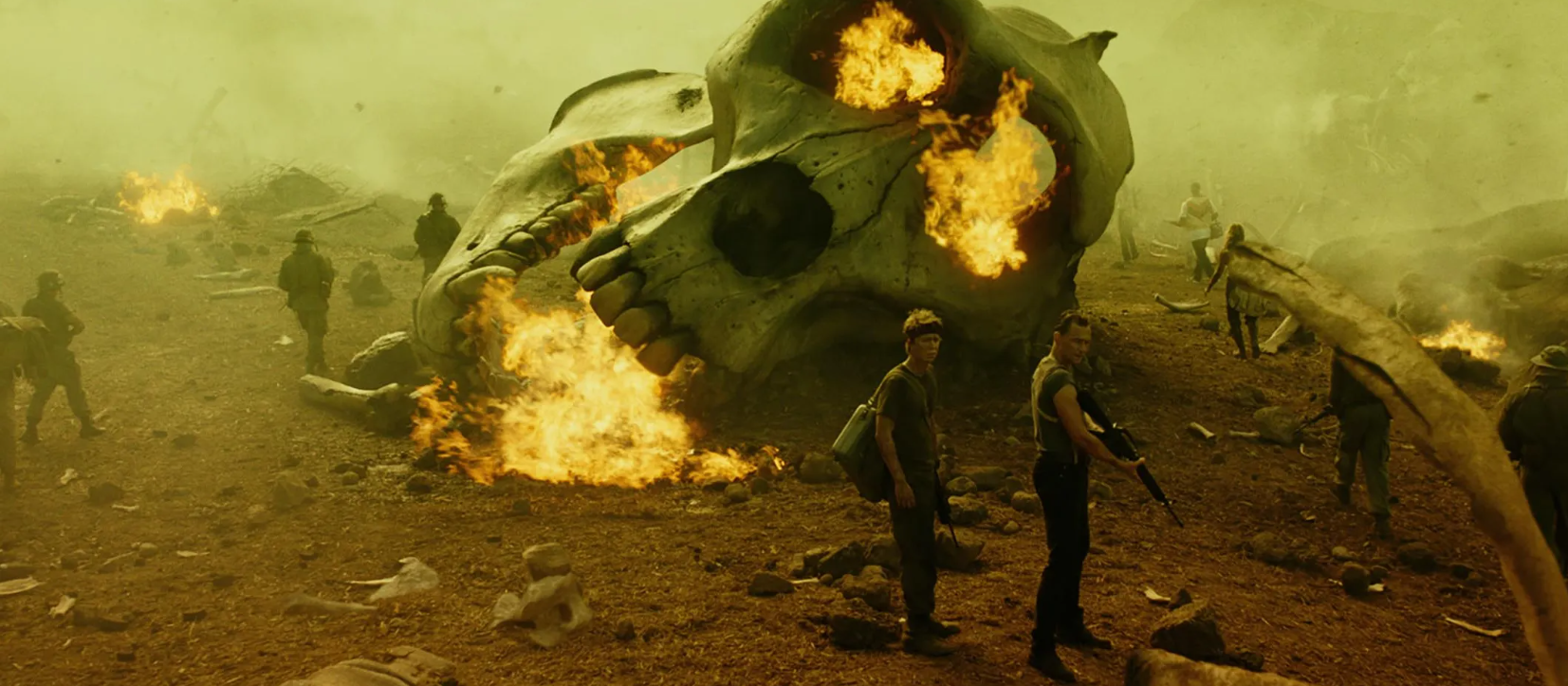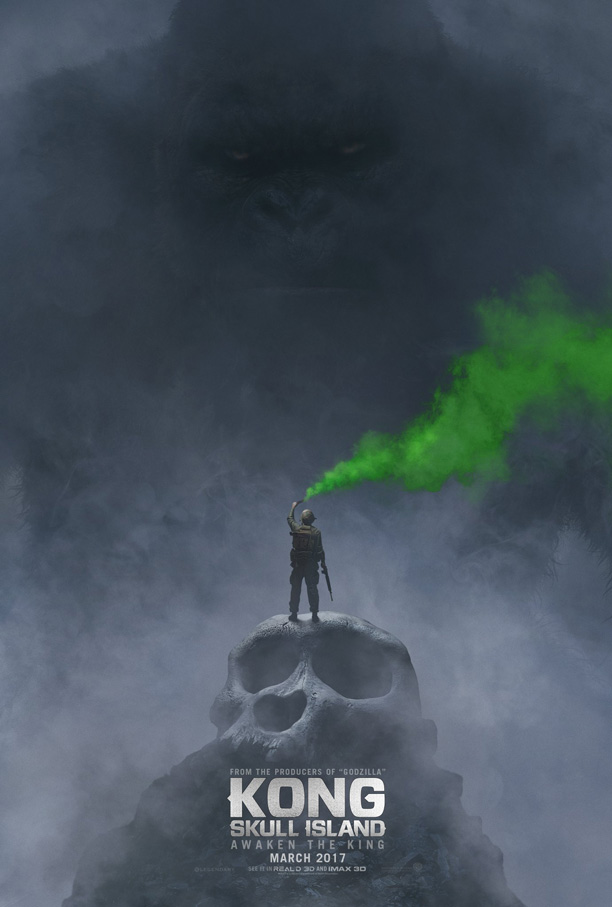

“Is your Yale degree supposed to lead us through the jungle?”
Much less ambitious than the original 1933 King Kong or Peter Jackson’s 2005 remake, Kong: Skull Island is at its best when it pretends to be a nature documentary, diligently cataloging the fearsome flora and fauna that cover the giant gorilla’s native territory. It’s here that the film feels most comfortable with its material as the visual effects team runs rampant with giant long-legged spiders, majestic water buffaloes, tentacled horrors, and the petrifying “skullcrawlers,” all of which feel like they might have been plucked from the back pages of Hayao Miyazaki’s sketchbook. King Kong’s lumbering around too, of course.
But once the ersatz, one-note, human characters step onto the green screen the film cannot help but repeatedly shoot itself in the foot. It has enough star power (Tom Hiddleston, Samuel L. Jackson, Brie Larson, John Goodman, John C. Reilly) and mindless action for the undiscerning viewer to munch through a serving of popcorn or two without being fazed, but if you look too close you’ll discover a sickening attitude: that director Jordan Vogt-Roberts and a disjointed team of screenwriters (the script and story are credited Dan Gilroy, Max Borenstein, Derek Connolly, and John Gatins, but this feels like it was written in an executive boardroom) seem somewhat embarrassed by the material, rather than excited or amused by it.
On the one hand, the film pays homage to Francis Ford Coppola’s classic war film Apocalypse Now by having the team move upriver toward an enemy they don’t fully comprehend—not to mention the Vietnam War era setting and the slew of classic rock songs that populate the soundtrack (Jefferson Airplane, The Stooges, Black Sabbath, Creedence Clearwater Revival, David Bowie). On the other hand, as they work their way toward the heart of the mystery, instead of finding a brooding, intimidating figure like Marlon Brando’s Colonel Kurtz, they stumble across John C. Reilly’s goofball WWII veteran who has been stranded on the island for nearly three decades and gets along with the natives.
In effect, the source material is held at arm’s length. They’re making fun of it, but not having any fun at all, which renders the bountiful action sequences, which are presented unironically, completely inert. But even here the film is plagued by indecision—should the action be over-the-top and fun, brutal and gory, or tune-out-for-a-few-minutes CGI? In the end, the aesthetic pillaging of Apocalypse Now only calls attention to the fact that Kong: Skull Island doesn’t have an original bone in its body. Vogt-Roberts and co. needed to muster up the courage to sincerely embrace the inherent campiness of the material, or else approach it with a straight face. This sardonic distancing—which plagues plenty of other films like this one, to be sure—sucks too much honest fun out of a pulpy storyline that should be a simple pleasure.
To wit, there is a late scene that exemplifies exactly what I’m talking about by offering an exception to the rule. A soldier played by Shea Whigham pulls the pins on two grenades and walks toward the granddaddy skullcrawler, hoping to be eaten alive and thus sacrifice himself to save his team. The monster slowly approaches him, and just when you think he’s gonna get munched, the beast spins and tail-slaps him with enough force to send him sailing through the air and into the side of a mountain, where he explodes all by his lonesome. That’s the type of humor that this film needs, not the low-grade banter that dominates the dialogue. (Reilly, who seems to be one of only two or three cast members actually engaging with the material, lands on about half of his self-aware jokes.)
A post-credits sequence connects this film to Gareth Edwards’ Godzilla. Like Edwards, Vogt-Roberts had a single low-budget feature to his name before helming Kong: Skull Island. Unlike Edwards, his rudderless style of filmmaking fails to imbue this big-budget studio assignment with any sense of majesty or dread or scale or narrative tension.